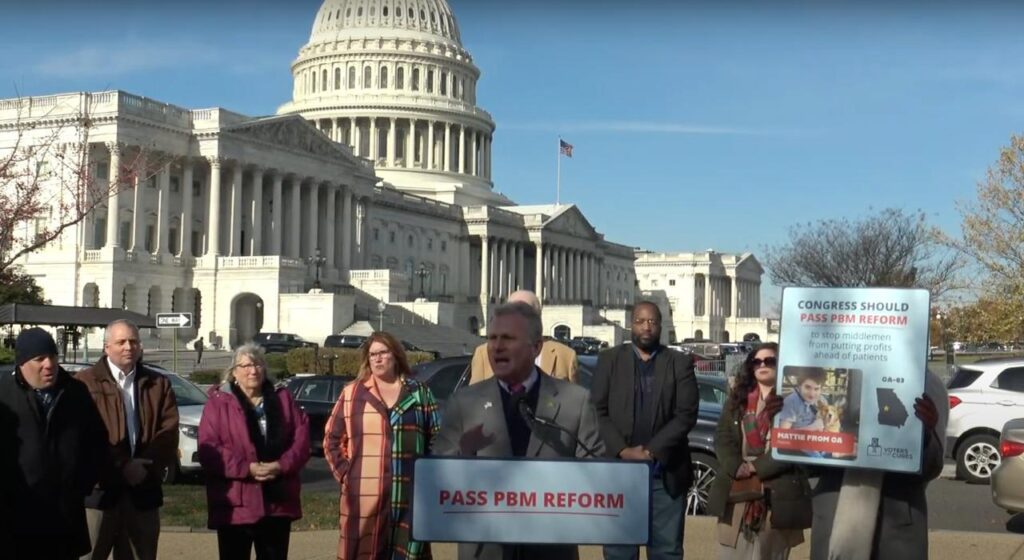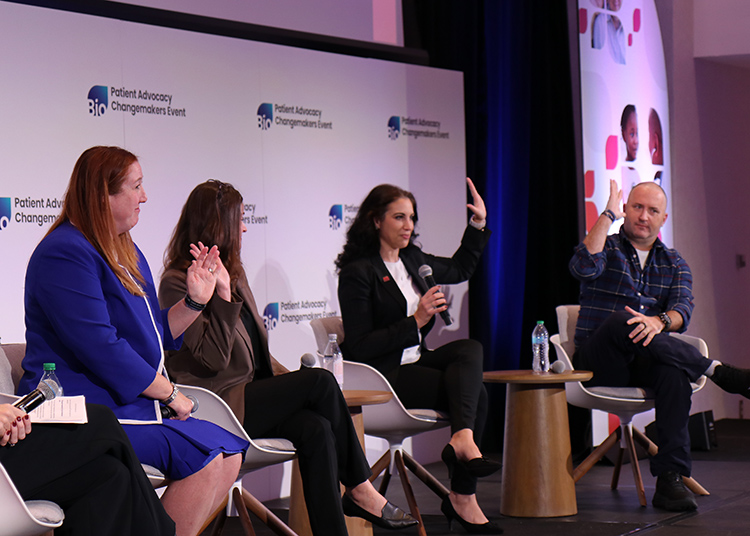Rep. Buddy Carter (R-GA) held a press conference on Dec. 4 to call on congressional leadership to pass pharmacy benefit manager (PBM) reform before the end of the year.
Rep. Carter and a group of bipartisan House and Senate lawmakers, as well as patient, caregiver, and independent pharmacist advocates from across the country, shared stories of patients who have been denied access to necessary drugs as a result of PBM practices.
“We’re not here today to just discuss one bill or to just discuss one patient story,” Rep. Carter began. “We’re here because there’s a broad, bipartisan [PBM reform bill] that is needed to save lives.”
Watch Rep. Carter’s Dec. 4 press conference.
When PBM stands for ‘pretty big markup’
Rep. Carter shared the story of one of his constituents, Mattie McCoy, who has a rare genetic disorder called spinal neurofibromatosis type 1, which causes abnormal nerve tissue growth.
“I was hoping he would be here today, but unfortunately, Mattie had to go back to the hospital last night and is in ICU right now,” said Rep. Carter. He explained that “one of the three PBMs that controls 80% of the market” would not cover a drug that had been working for him for two years.
Rep. Mariannette Miller-Meeks (R-IA) was joined by her constituent, John Nicholson, an independent pharmacist, who explained how PBMs are impacting local and rural pharmacies across the U.S.
“This year alone, 25 independent pharmacies have closed in Iowa,” Rep. Miller-Meeks explained. “And this has to stop. It’s not only the independent pharmacies. Even our chain pharmacies are closing stores in rural areas.”
“PBMs employ shady practices such as spread pricing, where they charge insurers more than they reimburse pharmacies, and they pocket the difference,” she continued.
“The way that PBMs work is they help to administer formularies on behalf of payers, such as companies and health insurers. And the way that they decide which drugs to put on their formularies is by who gives them the biggest rebates. Ordinarily, these would be called kickbacks, but in their world, they call them rebates,” added Rep. Juan Ciscomani (D-AZ).
“The higher the price of the pharmaceuticals, the higher the rebates, and the higher the rebates, the more likely that those pharmaceuticals make their way onto the formularies,” he continued. “Well, who ends up holding the bag? It’s the people who pay for the prescription drugs, namely our constituents.”
“So what does PBM actually stand for? It stands for pretty big markups,” he said.
Rep. Carter calls on Congress to pass PBM reform
At the press conference’s conclusion, Rep. Carter outlined legislation that could be passed in the next three weeks.
Specifically, Rep. Carter highlighted the Lower Cost, More Transparency Act and the Telehealth Modernization Act of 2024 as two pieces of must-pass legislation.
As Rep. Carter pointed out, the Lower Cost, More Transparency Act has “been passed out of the Energy and Commerce Committee, out of the Ways and Means, out of Education and Labor, and has passed the House and is sitting on Chuck Schumer’s desk right now. It needs to be passed out of the Senate.”
The Telehealth Modernization Act “modifies requirements relating to coverage of telehealth services under Medicare” and includes aspects of PBM reform related to telehealth. Rep. Carter called for the bill to be put on the floor for a vote before Dec. 31.
“Telehealth has become an integral part of our healthcare system, but the pay-for for that telehealth will de-link the compensation of the PBMs from the price of a drug and simply pay them a fee that will save millions of dollars,” he said.




